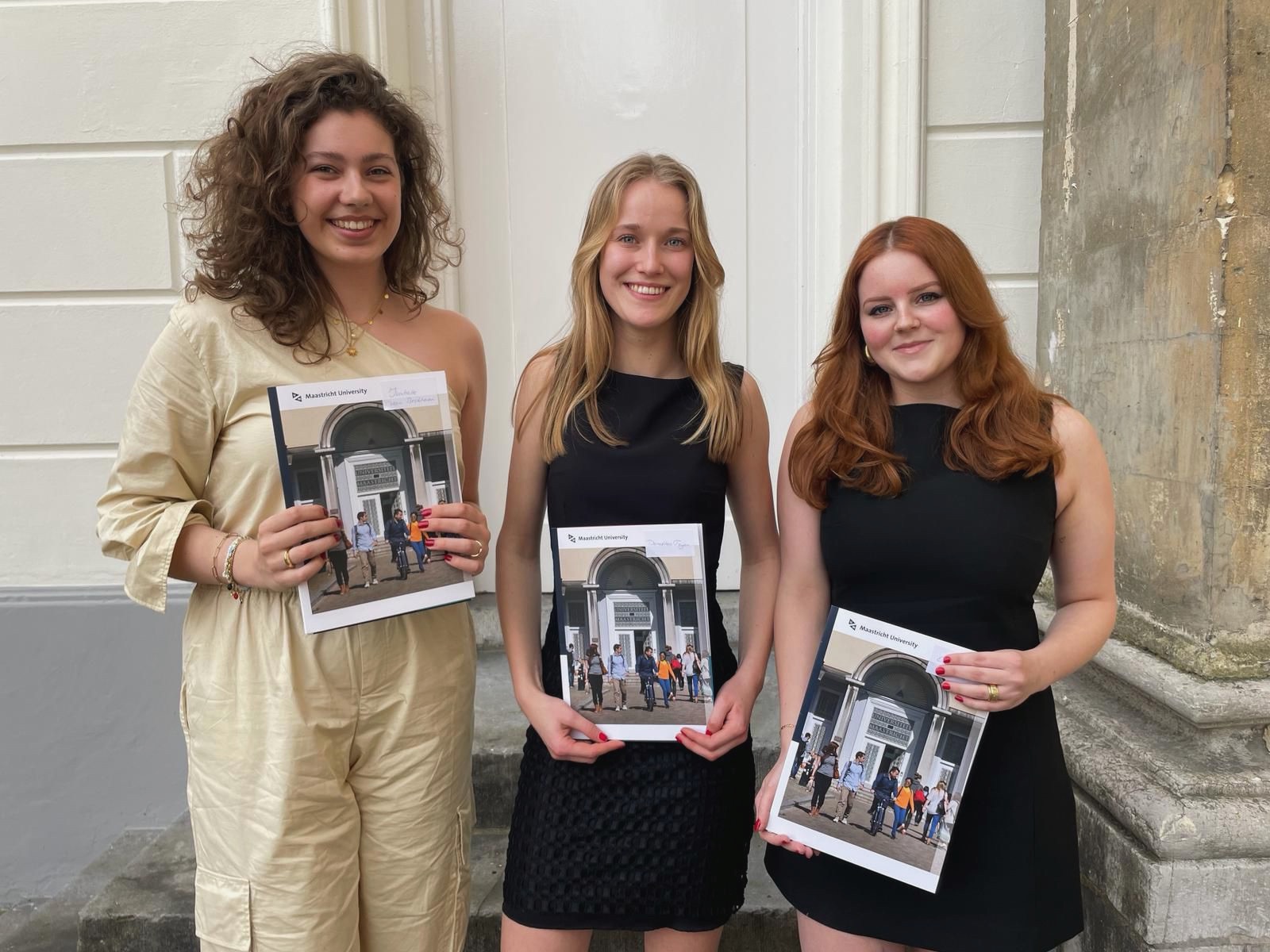How digital tools can give farmers in Malawi their fair share
Researchers from one of SBE's spearhead projects "Fair and Smart Data" were recently invited to join their partner Solidaridad Network on a field trip to Malawi and Zambia. The goal was to introduce them to their smallholder farmers-oriented digital projects. The goal of these projects is to ensure that farmers are able to reap the benefits of digitalisation, rather than suffer unfair treatment and adverse consequences due to the power imbalance in the global value chains.
In this blog, Sidi Amar reflects on his experience during his first trip to rural Malawi and on the positive impact farmers-oriented digital projects can have on communities.
Vast fields and endless hospitality
We started our field trip from the capital Lilongwe. After driving for 30 minutes, we made our way through the bushes on a bumpy dirt road between fields of corn and soy. You could see golden piles of drying corn plants stacked everywhere in the otherwise empty sprawl of fields. An unmistakable characteristic of the harvesting season.
When we entered the village, the inhabitants were waiting for us in front of their homes, surrounded by contraptions filled with drying fish. They were smiling and waving back at us; I could feel their warm and welcoming attitude in the air.

Sidi Amar is a researcher at the School of Business and Economics (SBE). His areas of research include sustainability, renewable energy, circular economy, and inclusive development
Sidi is a member of SBE's spearhead spearhead project Fair and Smart Data and of the Brightlands Institute for Supply Chain Innovation (BISCI).

When we stepped out of the vehicle, some of the villagers started marching toward us, forming lines while singing a pleasant song as a part of their tradition of receiving guests. Then, they led us to the front of the cooperative building. We stood on one side while the farmers gathered on the other, resuming their singing for a while. A Solidaridad representative interrupted the choir to proceed with a presentation of the work his organisation is achieving with the cooperative.
Fertilisers and inoculants are keys to a better yield

In his presentation, Solidaridad’s representative explained the effect of using the provided fertilisers and inoculants on the soy yields of the farmers. He claimed that the 12 demo plots where the inoculants and fertilisers were applied, had significantly better yields (9.1 kg with fertiliser and inoculant vs. 5.3 kg without per 49m2).
While presenting, he would often refer to the farmers to verify his numbers. The farmers would then readily pull out their phones to check and calculate. After the short presentation, we had the opportunity to ask questions to the presenter and the farmers; they were very responsive and ready to engage. Some raised their concerns regarding the potential impact on health and the environment of certain types of fertilisers and inoculants. The presenter asserted that these products were tested and approved by the local authority. Throughout my visit to Malawi, many locals with whom I spoke complained about the high price of the imported fertilisers, which is apparently due to the lack of producing factories in the landlocked country.
Before moving to the next scheduled activity, I approached two farmers that I noticed wearing full suits with shiny boots to ask them about their opinions on how the training and the fertiliser provision are affecting their farming and livelihoods. Yemlani Kabut (62) and Joseph Adzabowen (65), who are both soybean, corn, and groundnut farmers, were positive about Soldiaridad’s collaboration with their cooperative. They stated that their yields increased ever since they started following the training and using fertilisers.
Digitalisation under the tree

After my chat with the well-dressed farmers, we walked toward the venue where our hosts would make the big reveal: how they onboard the farmers in the system for their digital applications! For those familiar with the village culture of sub-Saharan Africa, the venue is a given: The largest tree that casts the biggest shadow in the village! In many African myths and stories, the tree is portrayed as an ancestral symbol of wisdom, authority and tradition, providing a bond between the dead and the living.
The seating arrangement under the tree reflected the hospitable and humble nature of the Malawians. They sat us on the chairs while they sat on the ground, making an arc around us. As the African proverb goes: “Wisdom is like a baobab tree; no one individual can embrace it,” we were in a communal sharing of information and knowledge.

Before starting their demonstration of Solidaridad’s applications, they asked us to introduce ourselves to the crowd. Whenever someone introduced themself, the crowd started applauding in a cheerful celebration. Then, the extension workers took turns explaining how they register the farmers, provide them with a digital ID (a QR code printout as an ID card, as simple and effective as that!), collect data about their farms, and offer them training.
In addition, the head farmers showed us how they inquire about their farms’ conditions and input data into the Apps. After explaining the Zwardy incentive and reward scheme, the farmers lined up to display the gumboots they won by collecting points on the App through attending training and following instructions in their farming practices. These boots cost around 6 euros a pair in the market, a testament that little can make a significant difference in smallholder farmers’ lives.
The digitalisation of smallholder farming: huge opportunities, and legitimate concerns

While sitting through the farmers’ presentations on how they use the chatbot on WhatsApp to inquire about the weather, their reward points, etc., Shungu (Digital Advisor at Solidaridad) looked at me and said, “ten years ago, I would’ve never thought this could happen!” Smallholder farmers in the Global South, like the ones in the rural areas of Malawi, are increasingly using digital tools in their farming activities. They now use smartphones to get information about their fields: when is it suitable to plant, what type of seedlings is more resilient, and what fertilisers are better for their crops. It is fascinating how technology could mend the knowledge gap and create a substantial impact on peoples’ lives in a brief period.
The digitalisation of small-scale farming through data collection and analysis opens many opportunities to smallholder farmers in Africa and elsewhere. The rate of adoption of technology is increasing steadily due to the improvement of the ICT infrastructure and the race for data collection from international organisations for all sorts of applications. According to a report by the Technical Centre for Agricultural and Rural Cooperation (CTA), 390 distinct digital agricultural tools or solutions are currently deployed in Africa, 60 per cent of which were launched in the last three years. However, the biggest worry here is that farmers could end up suffering unfair treatment and adverse consequences due to the power imbalance in the global value chains, just like the way some Free Trade policies affected them negatively. As researchers and advocates for sustainability and fairness in the global value chains, we must make sure this outcome does not occur again!
A missing link…
At the end of the tree-gathering presentation, the crowd bursts into dancing. I wanted to join in, but, due to my lack of body coordination, I did not want to embarrass myself and give a bad impression of the Mauritanian people. Like our arrival, in our departure, the singing farmers accompanied us back to our bus; only this time the song had a more melancholic farewell tone.
On the way back to the capital, I kept thinking about the missing link in all of this: how can we make the situation better for these smallholder farmers? We have the knowledge, the technology, the aptitude, the finance, and the need─ what is missing?
Also read
-
The Honours programme is an extracurricular activity for bachelor’s students in year 2 and 3 to showcase their academic skills and teamwork in a real-life project. We talked to Emma van Straten, a Health Sciences student and Honours alumna who organised an international conference on Lama2 in...
-
The University Council of Maastricht University (UM) is holding a confidential today.
-
The Executive Board Executive Board and the University Council of Maastricht University (UM) met today and discussed both the protests at UM and the underlying issue of international cooperations.

